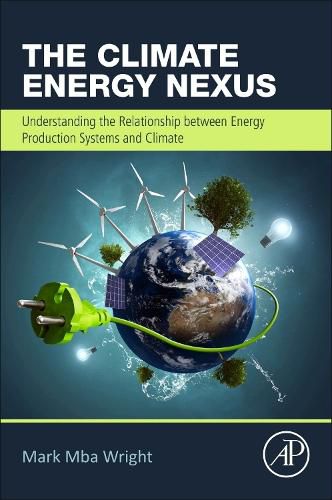Readings Newsletter
Become a Readings Member to make your shopping experience even easier.
Sign in or sign up for free!
You’re not far away from qualifying for FREE standard shipping within Australia
You’ve qualified for FREE standard shipping within Australia
The cart is loading…






The Climate Energy Nexus: Understanding the Relationship between Energy Production Systems and Climate Trends offers fundamental material on energy and climate systems, progressing to establishing advanced and integrated energy-climate models. Describing the motivation and key challenges in the climate-energy modeling community, this reference looks at the fundamentals of climate and energy systems before integrating them into a cohesive analysis framework. The book presents various energy production optimization case studies spanning urban and national scales, annual to multi-decade long timescales, and various economic and environmental considerations
Practitioners and students interested in climate and energy systems will gain a foundational platform from which to develop informed assessments of future energy use. As making informed energy planning decisions requires a better understanding of how climate trends, extreme events, and public policy could impact energy production performance, cost, and emissions, this book is an ideal resource for readers.
$9.00 standard shipping within Australia
FREE standard shipping within Australia for orders over $100.00
Express & International shipping calculated at checkout
The Climate Energy Nexus: Understanding the Relationship between Energy Production Systems and Climate Trends offers fundamental material on energy and climate systems, progressing to establishing advanced and integrated energy-climate models. Describing the motivation and key challenges in the climate-energy modeling community, this reference looks at the fundamentals of climate and energy systems before integrating them into a cohesive analysis framework. The book presents various energy production optimization case studies spanning urban and national scales, annual to multi-decade long timescales, and various economic and environmental considerations
Practitioners and students interested in climate and energy systems will gain a foundational platform from which to develop informed assessments of future energy use. As making informed energy planning decisions requires a better understanding of how climate trends, extreme events, and public policy could impact energy production performance, cost, and emissions, this book is an ideal resource for readers.